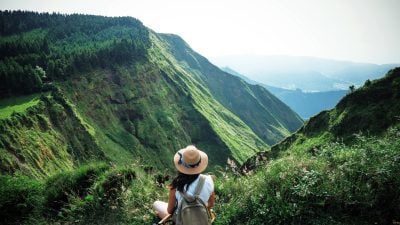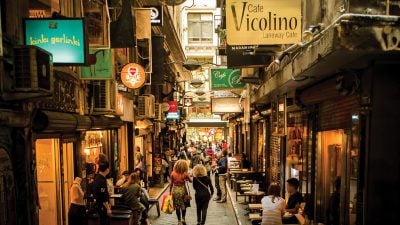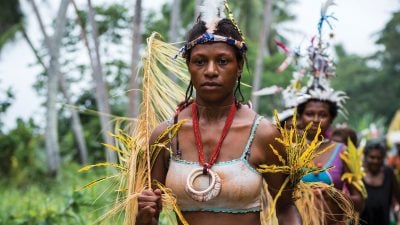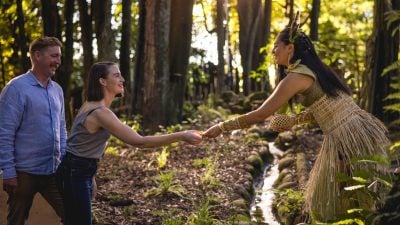Home / Africa & Middle East / Surprised by Arabia
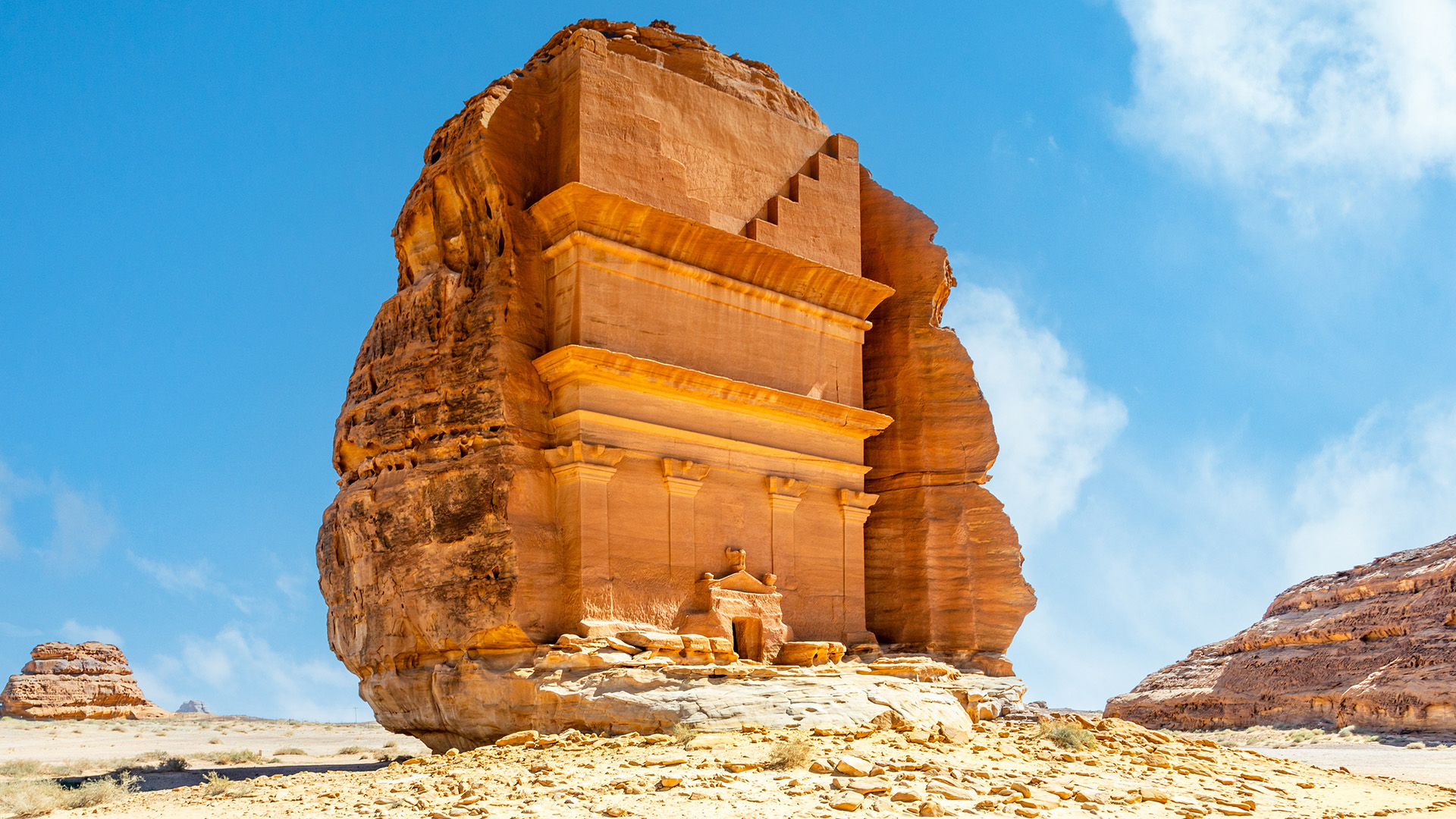
Surprised by Arabia
To most people in the west, the Kingdom of Saudi Arabia is not on the tourist radar. It wasn’t on my own radar, but that didn’t stop me from visiting it this past spring. Here I was, a single female traveller, blonde haired and blue eyed, travelling through the seaside city of Jeddah, the holy city of Madinah, the desert oasis of AlUla, past the sandstone formations of Tabuk, and finally to the capital of Riyadh. I didn’t look like the typical traveller to Saudi Arabia.
And that’s exactly the point.
People’s conception of Saudi Arabia and its reality don’t match up. Saudi Arabia surprised me. It shattered some of my popular misconceptions about life in this Middle Eastern kingdom.
Misconception 1: It’s not safe, especially as a solo female traveller.
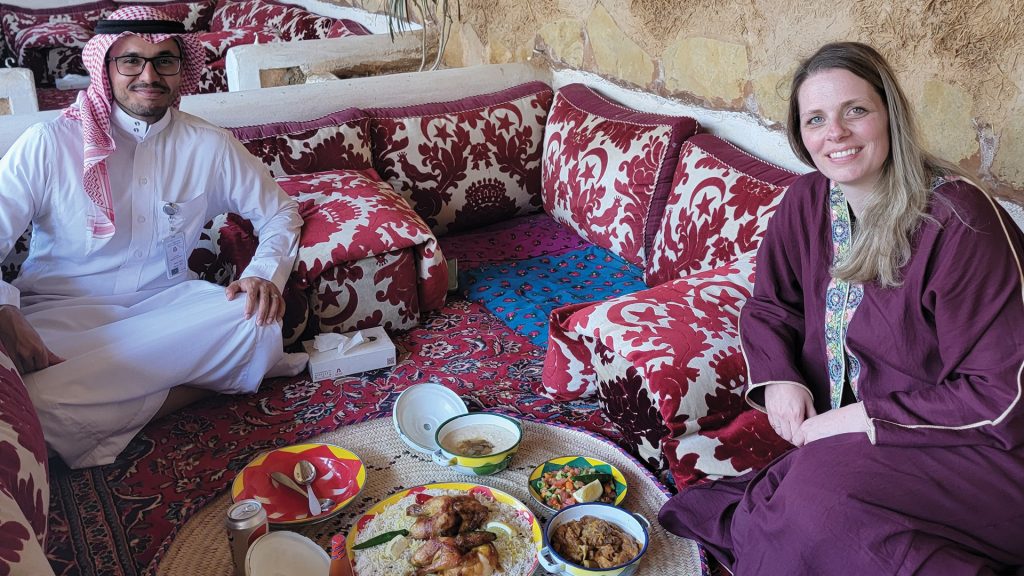
When I first told people I was travelling to Saudi Arabia on my own, I was met with surprise and blank stares followed by passionate exclamations: “You need a male chaperone! Is it even safe?” Yes, Saudi Arabia is a patriarchal country, but it’s also very safe, especially for women, who don’t need a male chaperone. I will never forget what my Dutch colleague who lives in Jeddah said: he would feel much more comfortable having his wife out alone at night in Jeddah than he would in Amsterdam.
Night or day, I always felt safe, comfortable, and welcomed everywhere I went. At one small restaurant, one of the male employees heard me mention baklava and five minutes later we had free baklava offered to us. Later, I stopped at the Maraya concert hall in AlUla, which happens to be the largest mirrored building on earth, only to find out that it was closed. After a quick chat with the security guards, they gave us a private look at the auditorium. People are friendly here, even to a solo female traveller.
Misconception 2: Women need to cover up like ninjas.
It’s culturally appropriate to wear head coverings and long robes that cover a woman’s body, but it’s not the law…anymore. If you visit any Muslim country, you will see women wearing all different types of coverings from the basic abaya to the more conservative burqa. Abayas are a popular choice in Saudi and a celebrated part of Saudi culture and heritage, like the kimono is in Japan. I wore an abaya while visiting Madinah, as it’s culturally expected in this holy city. But I didn’t have to wear it anywhere else. Women can wear loose fitting pants or long skirts and long-sleeved shirts in major cities and wear basically whatever they feel comfortable wearing in AlUla and the desert.
Misconception 3: Saudi culture will never change.
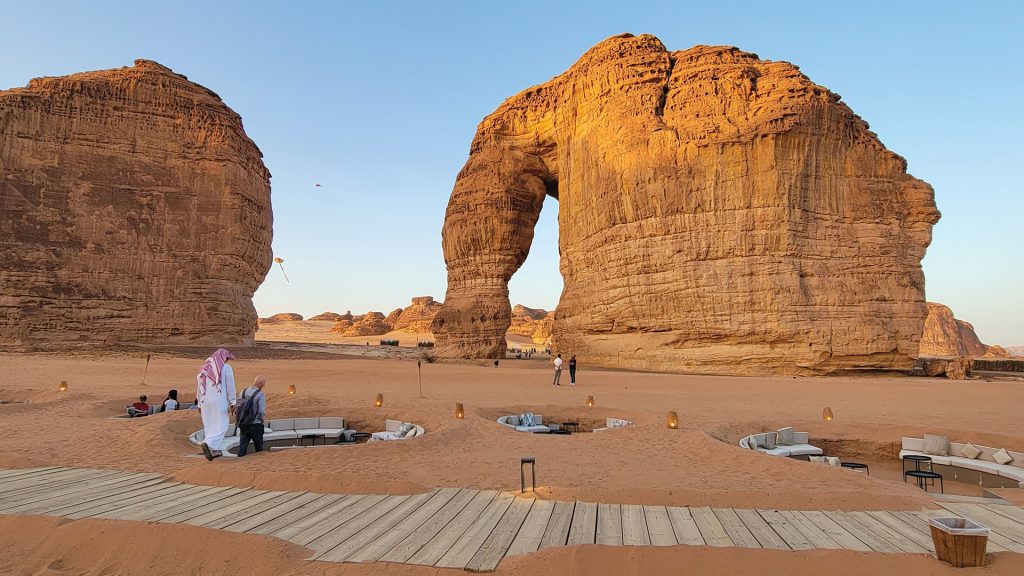
Saudi Arabia is quickly transforming due to Vision 2030, which prioritizes modernization, economic diversification, and inclusivity, including the empowerment of women. This was apparent from the moment I arrived at the airport in Jeddah. Almost everyone working customs and immigration were women. I had female guides, female front desk staff, and I even saw female police officers in AlUla. Women have been permitted to work without a guardian’s consent since 2017, and the Vision has also allowed women to drive, divorce, and travel abroad.
Now, there is still segregation at certain venues, such as I witnessed at some restaurants, which have separate eating areas for men and families. So you still get glimpses of old Saudi conventions here, but they’re not the law. Respecting such conventions is a part of visiting a country where tradition runs strong. For me, the only restriction I dealt with while travelling was not having a cocktail at sunset, as alcohol is illegal. A small price to pay, and one made easier by the delicious mocktails offered everywhere.
Misconception 4: Saudi Arabia is only for Muslim pilgrims.
I was expecting to experience a destination that was only for Muslim pilgrims heading on the Hajj or trailblazers who wanted to brag about travelling beyond the tourist trail. My expectations were off. Saudi Arabia has a well developed infrastructure for tourism, which caters to a lot of travel interests.
People speak English. The food is fantastic, offering a variety of different types of Arab dishes plus tons of international options at different price points, including more American fast food chains than I’ve ever seen before. There’s fresh caught fish from the Red Sea, delicious quinoa tabouli, incredible kabsa (a chicken and rice dish). I even liked the popular camel stew. And exceptional Arabic coffee and dates are staples found everywhere. You can discover historic landmarks, including Hegra and other Nabataean archaeological sites. You should visit these spots before the mass tourism crowds arrive. I visited in the off-season and basically had the sites to myself. But it won’t be this way for long.
Eventually, there will be many travellers snorkelling the Red Sea, exploring the old town of Al Balad in Jeddah, and learning about the rich traditions of this nation. And like me, these travellers will find their misconceptions challenged and their understanding of the world broadened. Soon enough, Saudi Arabia will surprise them.
To learn more about Saudi Arabia, please visit visitsaudi.com. This article was originally published in No. 31 of Globetrotting Magazine.
Get more travel inspiration by email.
Subscribe
0 Comments

Get the latest travel trends & hear about the best deals on vacations around the world.
If you’re a Globetrotter, these are the newsletters for you!
